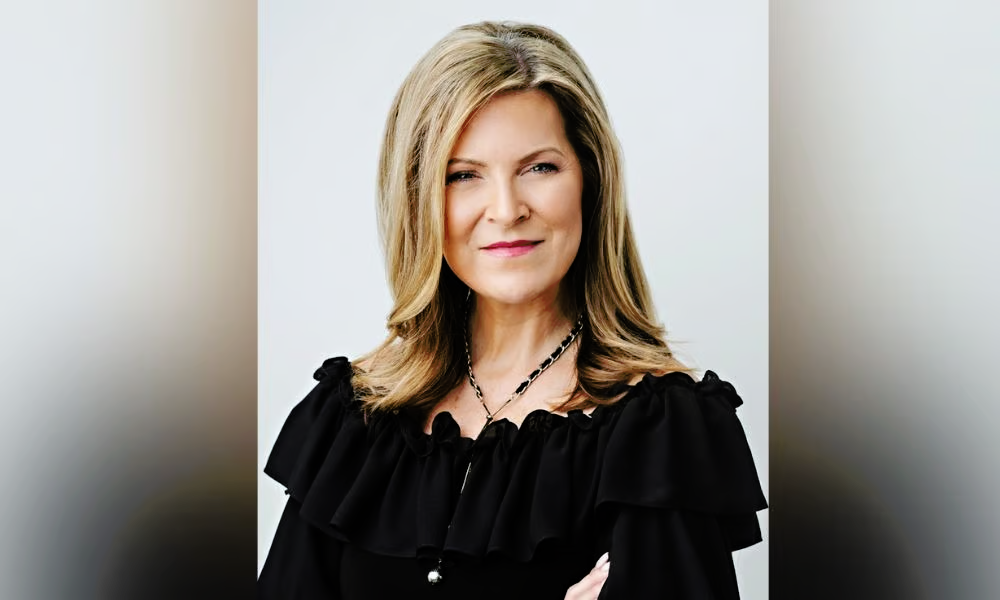Leading broker on her approach to helping clients safeguard their financial futures

As Canada’s economy continues to chart an uncertain post-pandemic path, the value of financial literacy has never been greater for Canadians to safeguard their futures – but how might mortgage professionals broach the often-uncomfortable topic of financial education with their clients?
For Tracy Valko (pictured), chief visionary officer and brokerage owner at Valko Financial, there’s a “huge need” to address the fundamental basics of financing, with many Canadians lacking a clear understanding of what’s required to budget, save, and build a stable, prosperous financial future.
Valko told Canadian Mortgage Professional that conversations around financial wellbeing could be difficult, with borrowers often reluctant or unwilling to have a frank discussion about their own situations and debt levels.
“People are so judged by their bank account, and I found that people were coming in and talking to me over the years, having a safe place to have a conversation with a professional ended up with me being more of a counselor,” she said.
“I found that people just didn’t have an outlet to speak their truth on not understanding financing – not understanding, ‘What is a real savings account? What are investments? What is a TFSA?’”
Addressing those important knowledge gaps around financial health was one of the key reasons behind the launch of Valko’s new podcast, Beyond the Mortgage, which aims to discuss views on financing and finding success with a host of leading experts.
For Valko, educational shortcomings when it comes to financial literacy can often be traced back to upbringing, with people having either learned about finances from an early age or requiring further, judgement-free education.
According to TMG The Mortgage Group agent Ryan Sims, it’s essential for agents and brokers to avoid bringing a “one-size-fits-all” approach to their clients.https://t.co/7wg2UnHpxl#mortgagenews #mortgagebrokers #mortgageinsights
— Canadian Mortgage Professional Magazine (@CMPmagazine) June 28, 2023
When mapping out financial goals, it’s also important to understand that not every picture of success has to involve lavish wealth, she added.
“Everybody’s success doesn’t have to be defined by how much they have in their bank account,” she said. “It’s really what makes you happy. Your happiness should be your alignment. I’m not going to tell everyone that you need to make this amount, that you need to have a million or billion dollars in your bank account.
“What is your [goal] in life to make you wealthy for yourself? That doesn’t mean having to have a big house. Maybe you need to downsize, maybe you need to move into a different province to make it better for you, but you’ve got a better quality of life and are still able to be financially stable. I think stable is the new wealthy.”
How should the conversation about financial literacy begin?
Valko’s approach to helping clients get their financial goals in order starts with simply listening: taking the first half hour of the conversation to hear their story, gaining a better understanding of where they’re coming from, where they currently stand, and where they want to get to.
It also involves receiving a comprehensive breakdown of each client’s current financial situation beyond a simple credit check – income disclosure, outstanding debts, credit card outgoings – to help them draw up a budget and assess where changes could be made.
“It’s taking the basics of financial planning. I always say to people, ‘Slow is the fastest way to get there,’” she said. “I can’t fix it all in one day. It’s not about taking people and saying, ‘Let’s just refinance your home and consolidate your debt,’ because that’s just a Band-Aid.
“There are simple steps to be able to get to [the right] point and slowly see a change on a week-to-week basis. Let’s open up that savings account – I don’t care if it’s $5 or $10 or $20, it’s still your mindset of changing, that things are getting better for you and you’re actually working towards a goal.”
What’s missing in the institutional approach to financial literacy
As for what could be done institutionally to address financial literacy shortcomings? Valko said it should start with “tying trauma in with financing,” dealing with the main causes to prevent new generations from repeating the mistakes of their predecessors.
“The problem right now is financial literacy in schools and education and universities – they’re teaching them structures: here’s a budget template, do this. Here’s what you need to do when you get a paycheque,” she said.
“But they’re not fixing the underlying causes. [Many] kids have got to go home to parents that haven’t taught them. So it’s generational education on financial literacy. These kids, a lot of them are going to be lost because they still end up emulating a lot of what their parents do.
“So we need to get back to the roots of understanding trauma, understanding the ramifications of growing up with your parents and what you need to do, whether it’s good or bad, to take that to the next level and then get into some foundational steps of basics of financing.”



